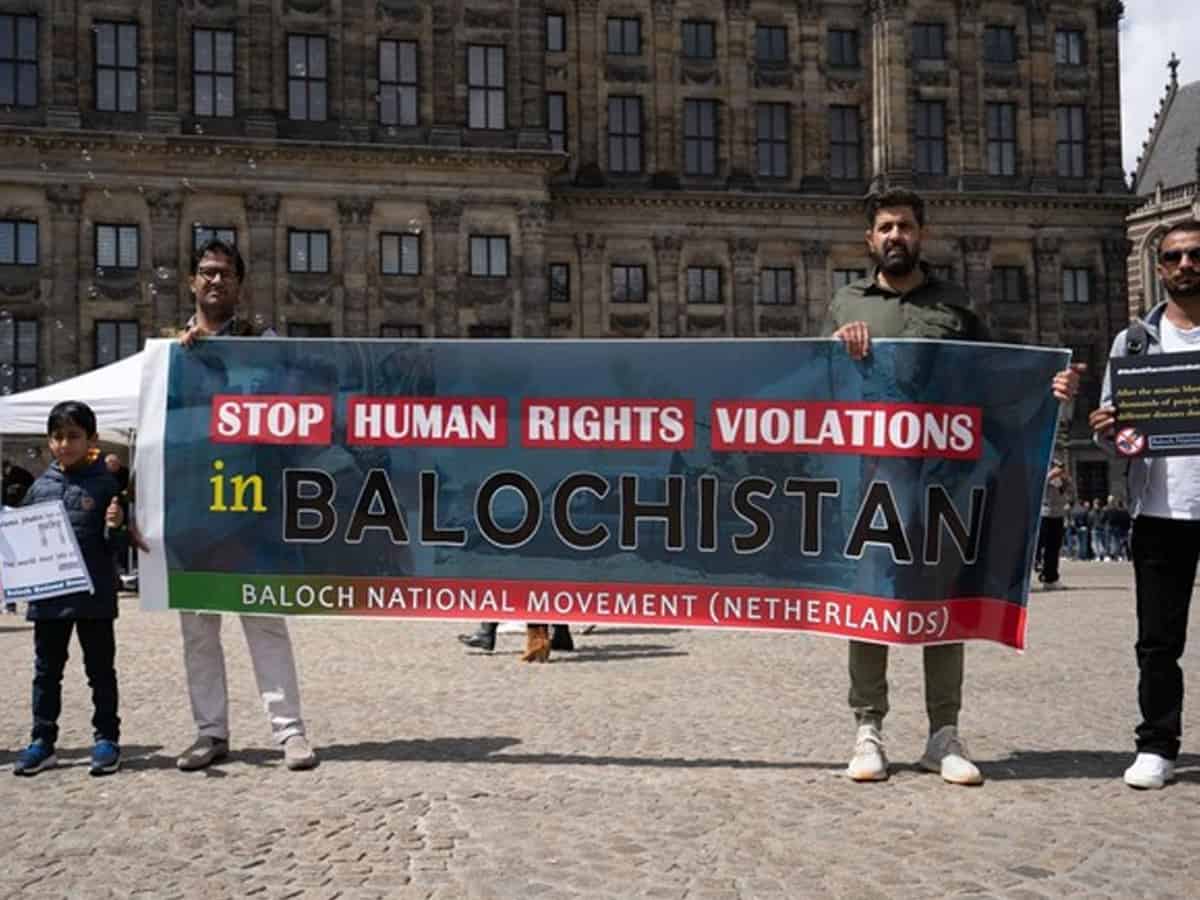
Amsterdam: The Baloch National Movement, Netherlands Zone organised a protest against the nuclear test in Balochistan that has led to people of Chaghai suffering from disease and other issues even today.
On May 28, 1998, Pakistan tested 6 nuclear bombs in the Chaghai area of Balochistan which led to severe aftermath in the region.
Protesters also distributed pamphlets to raise awareness about the nuclear test in Chagai. They were holding placards and banners, highlighting the severe impact of nuclear radiation in Balochistan after the nuclear test.
The demonstrators also chanted slogans against the testing of nuclear weapons. A huge number of local people were attracted and expressed their concern and solidarity with the people of Balochistan against the nuclear test by Pakistan.

Hammal Haider Baloch, the foreign secretary of the Baloch National Movement said, “Chagai and surrounding areas are flagged with severe diseases after May 28, 1998, nuclear tests by Pakistan”.
“People are suffering from chronic diseases. Children are born with disabilities while other serious diseases such as cancer are more prevalent in those areas due to nuclear radiation. From 28 May 1998 till today people of Balochistan are confronting fatal diseases,” added Hammal.

Jamal Baloch, a Human rights activist and a member of the Baloch National Movement said that Pakistani nuclear tests in Balochistan caused several health hazards in Balochistan.
“We appeal to the international community that they should curb the nuclear programmes of Pakistan.
Pakistan is a terrorist state, and lethal atomic bombs in control of Pakistan is a looming threat to the entire world”, he said.

Jamal added, “We request to the world that all nuclear weapons of Pakistan should be banned and sanctioned because Pakistan commit war crimes in Balochistan by testing an atomic bomb in Chaghai”.
The former President of Baloch National Movement Netherlands Zone, Keyya Baloch said that the nuclear test in Chaghai not only turned the mountain of Ras Koh into a heap of nuclear waste but it also causes deadly disease such as cancer, which has spread rampantly.
“Before these nuclear tests, people had enough means of livelihood but nuclear explosion has deprived them of all means. The areas had turned into barren lands, people are suffering from chronic disease and drought has been an order of day for the last two decades,” Keyya Baloch added.



